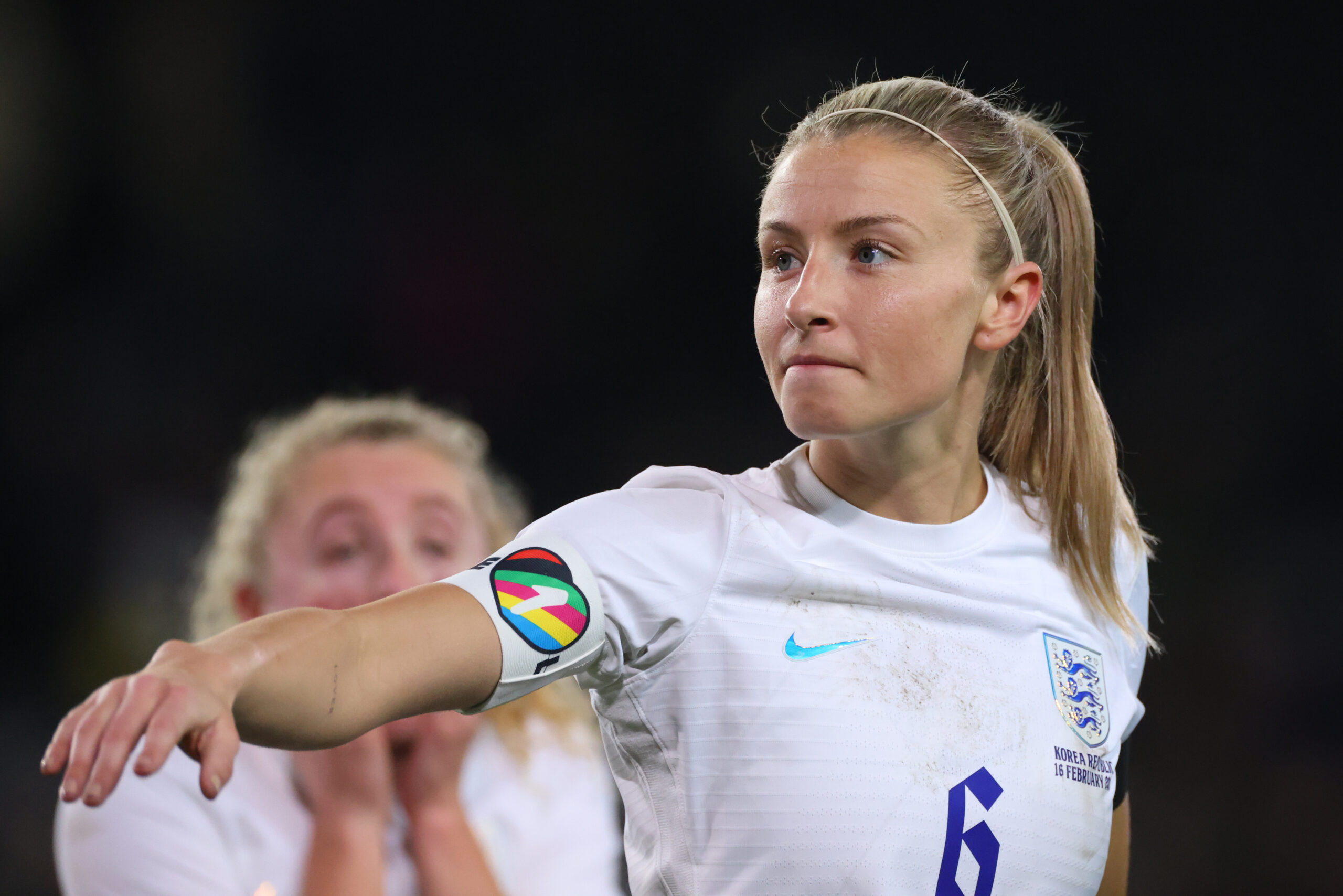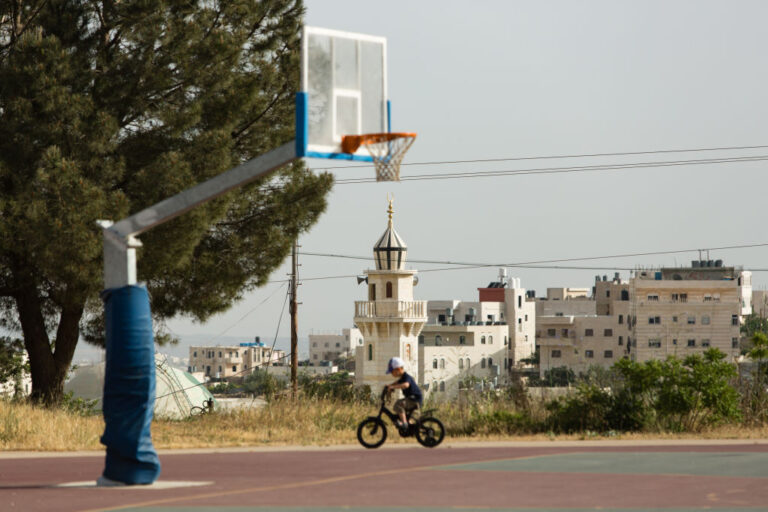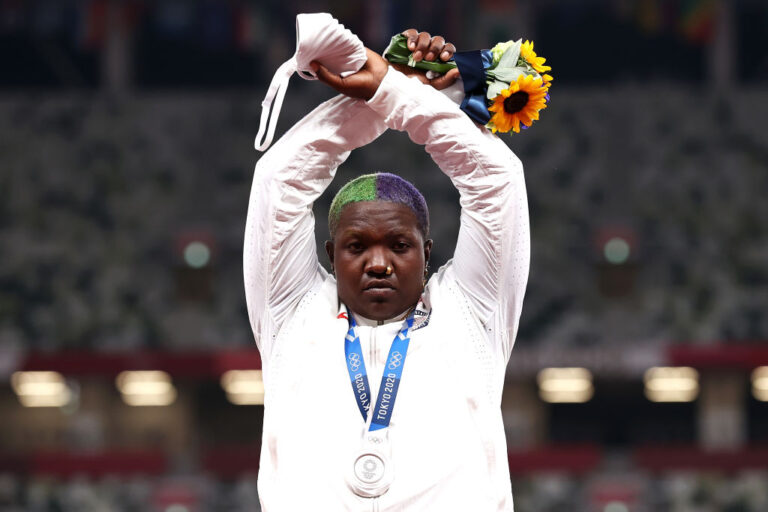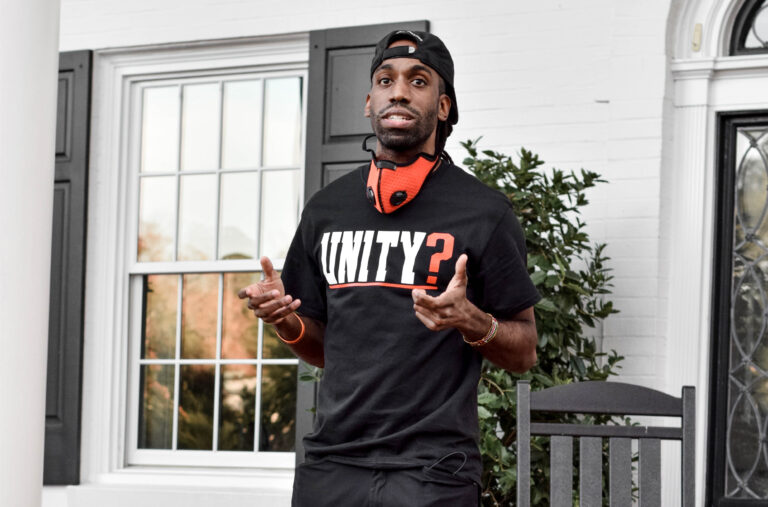‘It’s Gotta Be Their Agenda’: Athletes Face Backlash and Risk When Contemplating Activism
Why this matters
As expectations for athletes to engage in activism have grown, so too have the potential financial and punitive risks as well as backlash within their communities and locker rooms, making the decision to speak out increasingly complicated.
This past November, just before the kickoff of the Qatar World Cup, the England national team scrapped plans for a modest protest. Harry Kane, the England captain, had intended on wearing an armband featuring a rainbow and the phrase “OneLove” as a small gesture in support of gay rights in a country where same-sex relationships are criminalized. The protest would have been made alongside eight other World Cup nations, including France, Wales, Germany, and Sweden, all of whom also announced that they would back down.
In a statement, the England Football Association said that FIFA, the tournament’s governing body, “has been very clear that it will impose sporting sanctions,” likely meaning a yellow card, “if our captains wear the armbands on the field of play,” adding that “as national federations, we can’t put our players in a position where they could face [on-field repercussions].” And that was that. What was already a small, compromised action fizzled into nothing at all.
England's capitulation felt like a cut-and-dry example of cowardice. And on that week’s edition of The Guardian’s popular soccer podcast, Football Weekly, that opinion was loudly and definitively expressed by the show's pundits. But Nedum Onuoha, the former English footballer appearing on the show as a guest, explained that pushing back on bosses and coworkers isn’t so straightforward for athletes in the middle of a controversy.
“[Being] comfortable to be outspoken — that isn’t necessarily the case for everybody,” Onuoha said. “I’ve seen it through football for many years: People have opinions, but they do find it quite hard sometimes to be open and to be out there. Not everybody has that knowledge, nor do they have the sense of courage to be as outspoken as to go against FIFA, to go against their teammates.
“Some people would, and if you played, I’m sure you would,” he added to one of the show’s hosts, possibly with a bit of cheekiness. “But in that situation, you’d always be the exception as opposed to the rule.”
Fans almost expect modern athletes to use their platforms for protest. But as Onuoha explained, taking an activist stance is a difficult decision to make from inside a locker room. While quiet athletes are often presumed to be uninterested in the greater discourse happening around them, the truth is they may be afraid to participate or are unable to muster the courage to act without institutional support. What actually goes through an athlete’s mind before they make the call to speak out?
Explore: Our 'Athletes & Activism' Digital Issue
As a commentator, Onuoha is uniquely positioned to answer that question. Now 36, he’s only a few years removed from a soccer career played at the highest levels in both the United Kingdom and the United States. And perhaps because he was never a star during his playing career but more of an endearing everyman, he also seems to have a natural understanding of the common fan’s perspective.
Onuoha started playing professionally in 2004 with Manchester City, “before Instagram, before Twitter, before being connected to the world all over,” he said in a recent interview with Global Sport Matters. “Back then your platform was basically geographical, where you were. That was your audience. You could make a stance or have a political thought, but it didn’t carry the same weight. Then time passed, and you realized you are connected to everyone in the world.”
Now, he said, an athlete is “faced with a decision. You anticipate the consequences of everything that you do. Something can be co-opted into something that it’s not, and it doesn’t matter what your initial intent was as soon as it’s out there in the world.”
When Onuoha sees athletes express themselves, he thinks of all the steps that came along the way, all the context that goes unsaid. “I try to wonder, what made them reach this point?” he said.
According to Onuoha, today’s athletes understand that no stance will be universally liked. And even if just 1 percent or 2 percent of fans dislike what they have to say, those fans can make themselves very vocal. By the time an athlete speaks up, there’s a good chance that they’ve calculated the potential consequences from their audience. But what happens when their convictions go against the interests of the governing bodies that control their careers?
The example of Raven Saunders is particularly relevant. Saunders won the silver medal in the 2020 Olympics shot put. Standing on the podium after, the American crossed her arms to represent, in her words, “the intersection of where all people who are oppressed meet.” Afterwards, Saunders was investigated by the International Olympic Committee, which suspended its efforts only after Saunders' mother died. Whenever a governing body acts in a repressive manner, it can have a chilling effect throughout global sports.
Referring to his comments on Football Weekly about England, FIFA, and Harry Kane, Onuoha explained that “just because they didn’t wear the OneLove armband in that moment doesn’t mean they don’t care about that community. Some people might say, ‘They don’t want to say something that might jeopardize their careers,’ but the biggest topic is, why should they feel that something like this would jeopardize their careers?” According to Onuoha, the more pressing concern isn’t why Kane decided not to wear the armband, but how overarching power structures led to Qatar hosting the World Cup in the first place.
In 2020, toward the end of his playing career, Onuoha was in the U.S. playing for the Major League Soccer club Real Salt Lake. That summer, George Floyd was killed by the Minneapolis police. “We had people from the left, from the right, people from overseas, people from the USA — we had a whole scope. But we all agreed that what we saw with George Floyd was wrong. That wasn’t a political issue. We go out; we kneel together. But as soon as we start doing it, …” he trailed off, alluding to backlash to what he feels is an indisputable right.
“That word, patriotism, it’s such an emotive word,” he said. “People really do fear it. People feel they have to behave because of it. But the right to peaceful protest is written in the constitution. What’s more American than that?”
At the time of the 2020 protests, Onuoha did an interview from the U.S. with BBC Radio in which he spoke with clear and compelling emotion and thereby accepted the risks inherent in taking a stand as an athlete. “I have loved living in this country but there is [another] side of it,” he said. “In the U.K., I am more comfortable because if something happens, it probably will not be deadly — but over here because of their [gun] rights, it is more common that altercations become deadly.”
As he told Global Sport Matters, “I never expect anyone to be as outspoken as me at the end of my career.”
***
The Women’s National Basketball Association has been at the forefront of the athlete protest movement. Its recent history illustrates what can happen when a league and its players move in unison to create change.
As The Athletic has pointed out, years before George Floyd’s death led to the widespread summer 2020 protests, the WNBA’s Minnesota Lynx took action in response to state violence. In 2016, after the police killing of Philando Castile in Minnesota, Lynx players wore T-shirts reading “Black Lives Matter” and calling for accountability during warmups of their next game. That was enough to prompt four Minneapolis police officers who were employed as security that night to walk out of the arena. Lynx coach Cheryl Reeve had warned her players beforehand: “I want you to understand that not everyone is going to agree with you.”
In 2019, following a WNBA game against the Seattle Storm, the Washington Mystics’ Natasha Cloud staged a media blackout. At the postgame press conference, Cloud insisted on speaking only about gun violence. In a subsequent interview with The Washington Post, Cloud spoke candidly about how she found the confidence to carry out that action, citing two factors: 1) seeing the various effects of the collective actions of the WNBA players’ union, and 2) working her way into the Mystics’ starting lineup. “This is my fifth year in the league,” she said, “and it took me five years to be like, ‘I know something’s wrong, but how do I use my voice? What is my voice? Who am I to speak on the situation?’”
For Sydney Colson of the Las Vegas Aces, silence wasn’t an option by the summer of 2020. “That was a time where we had to make a decision as a league whether or not we were gonna play,” she said in an interview with Global Sport Matters. Whatever the league decided, the consensus among players was that they had to take action. Colson’s experience is nearly the opposite of Onuoha’s. The WNBA’s collective culture was so powerful, and so intent on making a stand, that it swept individuals forward and transformed them, rapidly, into activists.
After deciding herself to play, Colson was approached by a representative from the Women’s National Basketball Players Association, who asked if she’d be interested in participating in the WNBA’s newly formed Social Justice Council. For Colson, it was “an easy choice” to take part and try to effect change while in the bubble.
“We felt like we had a chance to speak up about the injustices that Black people face when it comes to dealing with policing, about Black women being killed by state violence,” Colson said. “It was already weird because we’re dealing with the pandemic, we’re dealing with protests all across the country. We couldn't have made that season just an ordinary season.”
Many players, Colson admits, would have loved for the bubble to be business as usual. “Some people didn’t necessarily want to talk about the fact that they didn’t come to the bubble to protest. Some people needed the check,” she says. “You’re coming to make money, this isn’t about some bigger thing to you, and that’s your right to say it. I don’t agree with it, but that’s your right to have that feeling.” Effectively, though, that sentiment was foregrounded in favor of outspoken politicization.
As Colson sees it, the WNBA is “at the forefront of a lot of issues because Black women are at the forefront of a lot of issues and our league is 80 percent Black women. If we would have had a season and there wouldn’t have been some sort of protest, that would have been very odd.” In 2020, the overriding feeling, according to Colson, was “we’re doing this for Breonna Taylor,” a slain Kentucky medical worker for whom the season was dedicated, “or we’re simply not doing it.”
WNBA players are so prominent as activists that fans may now be taking it for granted. But doing so would be a mistake: As Onohua stated, it’s never easy or simple speaking out. The culture of protest now embedded in the WNBA is singular and should be admired. As Colson says, “We understand that there will be backlash. People to this day don’t like us not being out there for the national anthem. But this is me expressing that I’m not OK with something, telling you why, and moving that way. And that is essentially the point of a protest: You’re not supposed to get permission.”
***
“I dont know if anybody is out front, opinionated, anti-Trump, anti-MAGA [as me],” said Mike Cound, a basketball agent who runs Cound Group Global and has represented stars like \Basketball Hall of Famer Swin Cash. He means among his peers, other player agents.
Cound, then, is well-situated to speak about political action by players. He believes that despite the strides made since 2020, pro athletes are still conditioned to be careful, largely for the obvious reason: They have a lot to lose. Cound is expressing the fears an athlete might experience, the doubts, all the thoughts fans may forget exist. Cound knows his athletes, and he knows they have good reason to be afraid.
Still, Cound is a strong proponent of the athlete activism movement. Speaking of 2020 and the murder of George Floyd, Cound said, “that was so in our face and so dramatically terrible that people had to unite over that. But you could say, arguably, that the same reaction should be going over” the murder of Tyre Nichols in Memphis, “right?” Ultimately, Cound said, “I’m not in the business of telling my players what their crusades should be or suggesting to them they should take one on. That would be a little bit too bold on my part. But if they come to me and say, ‘Hey, I feel really strongly about this. How far can I go? In your opinion, Mike?’ I’m happy to push them past to where most athletes would go. I’m more likely to push into a danger zone than a lot of others. I'm not as cautious about it because I think you can express what you believe. But it’s not my place to push my agenda. It’s gotta be their agenda.”
And everyone knows the possible ramifications: “You do have the ability to get Kaepernick’ed,” Cound said, even “in little things.” Which again brings us back to Onuoha's original point. When an athlete speaks up, there may be more barriers the athlete had to traverse to make that statement that we, as fans, ever stop to think about.
***
This summer, the 2023 Women’s World Cup will take place in New Zealand and Australia. Ahead of the tournament, England national women’s team captain Leah Williamson has already made her feelings known:
She wants to wear the OneLove armband. “We’re never shy in saying what we stand for,” Williamson said earlier this month. “We’re a squad that promotes inclusivity and equality. We obviously have a number of people that feel very strongly about it.” As Willimson’s quote indicates, there’s a gulf between her desire to speak out and her ability to do so within the overarching structures where she works. Her point of view is clear. It’s in the ramifications around her choice to express that point of view that things get more complicated.
Because just as with Kane in Qatar, Williamson’s decision will be impacted by the governing body of the tournament. If FIFA again indicates that wearing the armband will lead to an immediate yellow card, the teams and their captains may again back down. Unless, of course, they decide that they believe enough in the validity of their actions to take the punishment. Unless, of course, Williamson, unlike Kane, has the courage — and, perhaps more importantly, the internal support from her teammates and her coworkers — to go rogue.





